The Cloud vs. On Premise [COMPARISON CHART]
When it comes to storing data and keeping it safe, you have two primary options – cloud storage and on premise. One of the most commonly asked questions we receive from customers is “what are the pros and cons of each approach?”
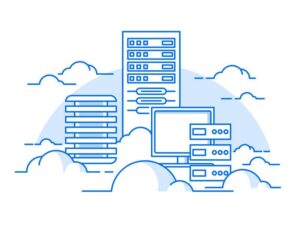 Within this article, we’ve included a helpful comparison chart detailing the differences between on premise and cloud storage. Let’s start with the basics.
Within this article, we’ve included a helpful comparison chart detailing the differences between on premise and cloud storage. Let’s start with the basics.
What is Meant By “On Premise and Cloud?” We’ll begin by defining the meaning of these terms.
Cloud Storage
When a reference is made to storing data in the cloud, this typically refers to a vast network of remotely managed servers, designed to provide secure data access for all parties involved. Cloud storage takes many forms, and there are a number of different providers.
Tech giants like Microsoft and Amazon offer cloud storage services, as do a number of smaller providers. The key is choosing a quality cloud storage provider that excels in security, reliability, and a host of other benefits.
On Premise
On premise data storage is just what it sounds like. When you choose on premise data storage, you are bringing the data in house. Typically, this means you’re storing data on a server within your facility.Unlike cloud storage, on premise storage requires that you develop an in house backup, disaster recovery, and security plan for your business.
A Major Difference between Cloud Storage and On Premise
Management is one of the key differences between cloud and on premise storage. With cloud storage, the provider is solely responsible for maintaining the data servers and backup is often included – a key advantage in many cases.
On the flipside, if you choose on premise storage for your data, you are responsible for maintenance, either through in house IT staff or by working with an outside IT consultant. On premise storage requires ongoing management over data, server security, and backup along with other housekeeping duties.
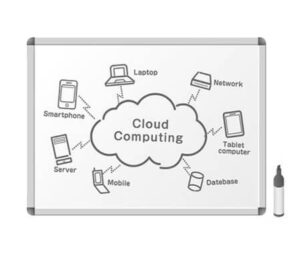
The Bottom Line – The Cloud is here to Stay
While there are clear pros and cons to both approaches, cloud storage has some other notable key benefits worth mentioning. While the above table offers a high level comparison, some points require further clarification of cloud benefits.
Cloud Cost Savings
If you’re currently using on premise data storage for your business, moving to the cloud can provide a number of important benefits like cost savings, especially if you’ve been spending a fortune on server upgrades and software licensing. By moving to the cloud, you can redirect funds to more productive parts of your business.
No Up-Front Hardware Costs
Cloud storage requires no up-front hardware costs and associated investments. Instead of investing in servers and software, you can store your data securely in the cloud and take advantage of the cloud storage provider’s existing security and infrastructure.
Mobility and Scalability
Cloud storage is also the better solution for mobility and scalability. Since files are stored remotely, they can be accessed from anywhere. Scalability is another key advantage that allows your business to more readily adapt to changing conditions.
Security
Security is another key benefit of cloud storage, but it is important to note that security is not equal throughout all cloud providers. If you want to enjoy security advantages of the cloud, you need to choose your provider with care. Not all cloud storage providers are the same, and finding a reputable company to safeguard your data is absolutely essential. Call Ontech Systems at 262-522-8560 if you need assistance and we can recommend a reputable provider and solution that fits your needs.
Drawbacks of Cloud Storage
Bandwidth Requirements
In order to move to the cloud, you’ll need to ensure there is sufficient bandwidth to make the cloud storage solution work. Since data is stored remotely on cloud servers, the information will need to travel and a fast means of communication is critical.
The ideal scenario for cloud services is a location where you have a fiber optic cable installation. This can give your business the high speed it needs to send files back and forth with ease.
Lower return on Investment in terms of pricing structure
While cloud storage offers a host of benefits, it’s not right choice for every business. In fact, on premise data storage yields a better ROI, primarily because it is a one-time investment with no ongoing monthly maintenance fees.
Specialty software may not be compatible
Cloud storage can be problematic if your business uses specialty software, especially if that software is not compatible with cloud-based standards. Businesses that routinely work with massive files may also have issues with cloud storage, since these high-bandwidth files take time to upload.
A Hybrid Solution: The Best of Both Worlds
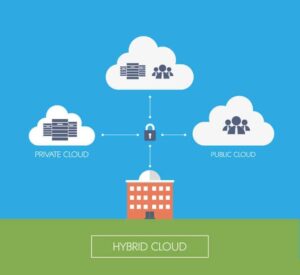
While there are pros and cons to both cloud storage and on premise solutions, there is a third option that many businesses are already taking advantage of.
With the hybrid approach, some data is stored locally, while other data is stored in the cloud. An engineering firm, for example, might keep their massive CAD drawings on site while uploading their smaller data packets to the cloud.
In the end, the choice of cloud vs. on premise does not have to be an either/or situation. With the hybrid approach, you don’t have to choose one or the other, and you do not need to move all your data all at once. If you find that your software is sluggish, unresponsive or incompatible, you can keep that part local, enjoying the benefits of cloud storage while minimizing the risks.
The hybrid approach also allows businesses to maintain uptime during the transition to the cloud. For businesses with large amounts of data, the full transition to a cloud based storage solution can take three or four days. The hybrid concept can minimize, or even eliminate that downtime by keeping critical files online.
Let Ontech Systems Help You Decide
The choice of on premise, cloud storage or hybrid is not always cut and dry, but you don’t have to decide on your own. Ontech Systems can help educate you on these options. After assessing your unique set of needs, goals, and anticipated future growth, we can help you make the best decision.
When you contact Ontech Systems, we can perform a comprehensive analysis that will project your costs and benefits over a five year period. We’ll show you the relative advantages and drawbacks of all three approaches for years one through five so you know where you stand, how much you can afford, and what you can expect.
Our account managers can even perform an on-site design and analysis based on your specific needs. When the on-site visit is over, our experienced engineers can design a solution that meets your needs, be it on premise, cloud based or a hybrid approach.
We employ an experienced technical team well versed in cloud migration. Ontech Systems can guide you through the transition process while designing the ideal cloud storage solution and minimizing risks every step of the way. Just contact Ontech Systems today at 262-522-8560 – a quick 10 minute call is all it takes to get the ball rolling.

Free On-Site Evaluation
For an audit of your current network, infrastructure, server(s), PC’s, backup, security performance, reliability and a Q&A session with our Network Consultant, contact us to request a free on-site evaluation.
